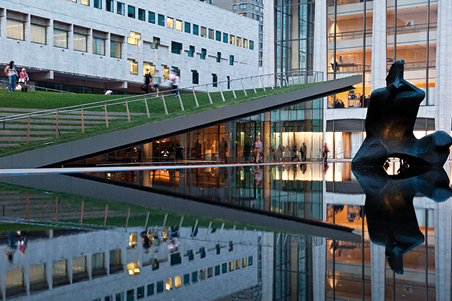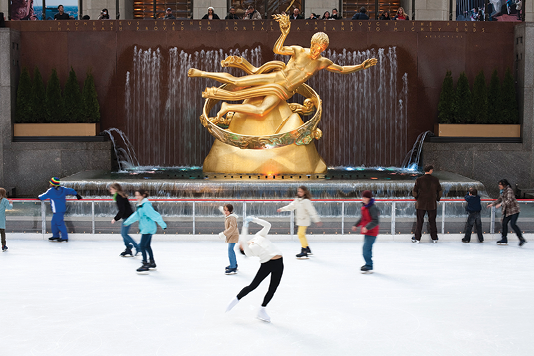- Home
- Media Kit
- Current Issue
- Past Issues
- Ad Specs-Submission
- Ad Print Settings
- Reprints (PDF)
- Photo Specifications (PDF)
- Contact Us

![]()
ONLINE

Focusing on Quality
Editors’ Note
Nick Valenti’s career began in 1968 when he became a management trainee in the airport division of Restaurant Associates. He was soon appointed manager of John Peel, and later moved to company headquarters, where he was recognized with successive promotions, ultimately overseeing all of the company’s many diverse restaurants. In 1994, Valenti was named President and CEO of Restaurant Associates. Valenti is Chairman Emeritus of the Board of Trustees at the Culinary Institute of America. He is a member of the Executive Committees of NYC & Co, the Convention and Visitors Bureau, and Citymeals-on-Wheels.
Company Brief
Patina Restaurant Group (patinagroup.com) is a leader in the premium segment of the restaurant industry. On the West Coast, its portfolio includes the renowned Michelin-starred Patina Restaurant in the Walt Disney Concert Hall, Nick & Stef’s Steakhouse, Café Pinot at the Maguire Gardens, Catal, and three other restaurants in Anaheim’s Downtown Disney District; Leatherby’s Cafe Rouge at the Segerstrom Center for the Arts, Hollywood Bowl, and Pinot Brasserie in Las Vegas; and catering and food service in museums and cultural centers throughout California. On the East Coast, its portfolio features the Michelin-starred Lincoln Ristorante at Lincoln Center, New York City’s world-famous Rink at Rockefeller Center, Rock Center Café, The Sea Grill, Brasserie, Café Centro, Naples 45, The Grand Tier Restaurant at the Metropolitan Opera, La Fonda Del Sol, and STATE Grill and Bar at the Empire State Building. Other East Coast properties include Tutto Italia Ristorante at the Epcot World Showcase in Orlando, Florida.
What did you see in the market that made you feel the timing was right for Patina Restaurant Group?
We’re in several different trade channels within the food service and restaurant area. It was clear to me that we could bring restaurant quality food to these different trade channels, whether that was sports and entertainment, museums and performing arts centers, or business and industry accounts.

Michelin-starred Lincoln Ristorante at Lincoln Center
Is the Patina brand recognition important or is it more about the specific brand or location?
It’s both. We don’t put the Patina name on the public restaurants so we try to develop a brand and a concept for a particular purpose or market.
As it relates to food service, the Patina brand is quite important. To have Patina as a food service operator at a museum or performing arts center, demonstrates that the institution is interested in a higher quality level of food service.
How critical is it to have an innovative culture and is that key to maintaining longevity?
The key to longevity is consistency. Within that, we need to stay current and relevant, which we can do by focusing on quality. It’s important to separate the important changes and innovations of the industry from trendiness. Being trendy, by definition, indicates a short life-span. We take a long-term view of the business. We’re one of the few companies with a reputation for outliving its leases.
Has the renewed focus on health changed your offerings and can you really provide a healthy version of a great meal?
For many years, people talked a good game regarding healthiness but often chose traditional menu items. Over the past several years, there has been a serious move towards healthier offerings and fresher food, and seasonality has always been important but it has become more so. Farm-to-table/market-to-table has always been a way of doing business for some of us and has since become more popular.
A good restaurant operator is going to take advantage of local products.

The view from The Rink at Rockefeller Center
Is restaurant-quality food at sporting events and cultural venues now a widely held expectation?
For many years, people accepted institutional-style food at these events or workplaces. The market came to the realization that they should eat just as well at work or at a sporting event as they do when they make their own choices in their neighborhoods. This was a vacuum we were able to fill fairly aggressively.
Does it surprise you to see how much the interest in food has taken off and is the concept of celebrity chef a good thing?
Awareness is a good thing. We’d much rather have guests in our restaurants that are educated and knowledgeable about food, and that is what has taken place.
I’ve been affiliated with the Culinary Institute of America for many years and the number of colleges and educational facilities in the U.S. has expanded by a factor of 10 over the past several years. People are much more knowledgeable and educated regarding food and beverage.
We get guests in the restaurants now who are chefs themselves or at least amateur chefs, and they know what 10 different mustards taste like or where the freshest vegetables come from at this particular time of the year. This has helped us – having consumers that are knowledgeable regarding food and beverage and what it takes to produce it has been a benefit.
How challenging is it to retain the talent and how important is that for consistency?
Incredibly important. With the new awareness of food, the industry has benefitted in that it is perceived as an option in terms of careers. We are now getting more people in the industry who are looking to do that.
On the other hand, it always has been and continues to be a fact that a portion of our employees are transient, which isn’t a bad thing. They enjoy working in different establishments. It’s an opportunity for our employees to learn while they’re pursuing different careers or working their way through school – there has always been an element of that in our industry.
The trick is to train and to hire folks that want to be around other people, and that want to have the opportunity to interact. The selection process is important. It’s incredibly important for providing a consistent experience for our guests.
Early in your career, could you have imagined spending it entirely in this industry?
To work in the hospitality industry, one has to get satisfaction out of serving others and providing memorable experiences – that is success in our industry. There has been an explosion in our industry and no one saw it coming, least of all me.
How do you define your role in leading Patina today and are you still deeply engaged in each part of the business?
To remain in the business at a competitive level, I have to stay involved and focused. There is no substitute for being present, so that has continued, of course.
It’s still about getting the right people into the business, and the folks I’m working with enjoy what they’re doing, which a customer can read immediately. If they sense that, they will have a memorable experience and keep coming back.•